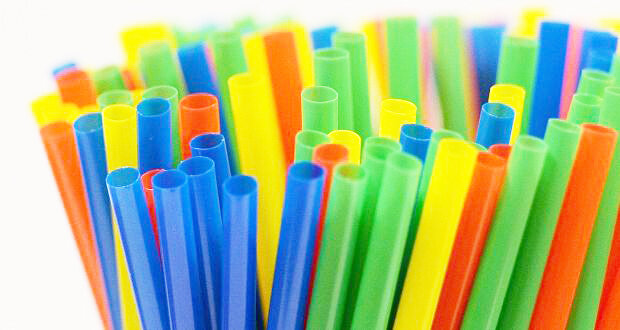
Plastics Pollution
Legislative Trends
At the federal level, the Environmental Protection Agency (EPA) sets general waste management standards, but no comprehensive national policy focuses on plastics recycling. As a result, state and local governments have adopted their own strategies, creating a diverse array of regulations. The most common initiatives to reduce plastic waste and increase recycling rates include plastic bans and restrictions, taxes and fees on plastic products, extended producer responsibility (EPR) laws, and recycled content requirements in plastic products.
Several states are limiting virgin polyethylene (PE) use by enforcing bans, taxes, fees, or import restrictions on single-use plastic bags. (Some states have county or city-level bans or fees imposed on single-use plastic bags).
A second regulatory initiative is in the form of Extended Producer Responsibility laws. These EPR laws mandate manufacturers to develop a plan to make products and processes more sustainable and recyclable, either independently or by joining a producer responsibility organization such as Circular Action Alliance.
Another initiative taken by many states is post-consumer recycled (PCR) content mandates in various plastic products. This is to promote the use of recycled materials in packaging to reduce environmental impact.
Impacts to Land, People, Wildlife
Overview
Plastics pollution can create problems for humans as well as wildlife, plants, waterways and other aspects of our natural world. The increased use of plastics can encourage the expansion of petrochemical production. And the proliferation of single-use plastics is increasingly clogging our landfills.
The problems associated with plastics are becoming more chronic. People already understand the issues with containers and other litter in waterways. However our waterways are increasingly being affected by microplastic fragments as well- plastics that do not completely break down, and are starting to affect the food chain within our waterways. Land-based plastics also continue to be a hazard for wildlife as well.
More recently, plastics and other single-use wastes are becoming an increasing problem for cities and their landfill and recycling operations. Fewer countries are willing to take US trash, and it is often un-economical for cities to send their trash to other regions. Meanwhile, local landfills are reaching capacity and recycling is only able to handle a fraction of the waste stream.
State and Federal Regulations
Many of Kentucky's waste management rules are found in the Kentucky Administrative Regulations, particularly Title 401, Chapters 30, 39, 45, 46, 47, and 48.
Kentucky requires each county to develop a solid waste management plan to manage the municipal solid waste generated within its boundaries.
Kentucky law prohibits illegal dumping, including littering, and imposes penalties for violations
The state allows beneficial reuse of certain special wastes, often requiring permits for such activities.
The state has specific guidance for businesses dealing with electronic scrap, differentiating between disposal and recycling processes.
Legislative History in Kentucky
2025 Session: There were two bills filed that specifically deal with plastic waste, H.B. 53 (K. Banta) and H.B. 295 (M. Marzian). Some version of these bills have been filed in multiple years.
Banta’s H.B. 53 bill in the 2025 session would have Imposed a new Class A misdemeanor for the unlawful release of balloons. This is defined as the intentional release of 10 or more balloons inflated with gas lighter than air within a 24-hour period, with the following exceptions: (a) Balloons released on behalf of a governmental agency or pursuant to a governmental contract for scientific or meteorological purposes; (b) Hot air balloons that are recovered after launching; or (c) Balloons released indoors
Marzian’s H.B. 295 bill in the 2025 session would have prohibited the intentional release of more than 25 plastic balloons. Establishes a ban on plastic, single-use carryout bags by July 1, 2030, a ban on the provision of single-use plastic straws and Styrofoam food and beverage containers by retail food and beverage establishments by July 1, 2028, and a civil penalty of $100 per day for violations.
Previous Legislative History
This was not the first time that the legislature attempted to pass legislation relating to containers and plastics. In 2018, the Senate filed an auxiliary container “pre-emption bill,” S.B.82, which would have given the state pre-emptive authority over the local control of container waste.
And in 2022, lawmakers passed H.B.45, a waste management bill which exempted “Advanced Recycling” facilities from certain solid waste regulations, but importantly, was amended to remove language that would have allowed “plastics to fuel” recycling— a process we oppose.
KCC has a long history of advocating for rational container and waste laws. We had been instrumental in advocating for a “bottle bill” as far back as 1999.
According to the National Caucus of Environmental Legislators (NCEL) 37 states considered over 230 pieces of legislation in 2020.
Resources:
Waste Tire Initiatives
In the 2025 session, the Senate adopted a resolution mandating the EEC "explore and implement strategies to remove waste tires from Kentucky's streams and waterways" (SR 238). This was sponsored by Senators Funke Fromeyer of Alexandria and Rawlings of Burlington.
Beshear announces $1.4 million for renewable projects using Kentucky tires, May 2025
According to an article by National Geographic:
Plastic pollution has become one of the most pressing environmental issues, as rapidly increasing production of disposable plastic products overwhelms the world’s ability to deal with them. Plastic pollution is most visible in developing Asian and African nations, where garbage collection systems are often inefficient or nonexistent. But the developed world, especially in countries with low recycling rates, also has trouble properly collecting discarded plastics. Plastic trash has become so ubiquitous it has prompted efforts to write a global treaty negotiated by the United Nations.




